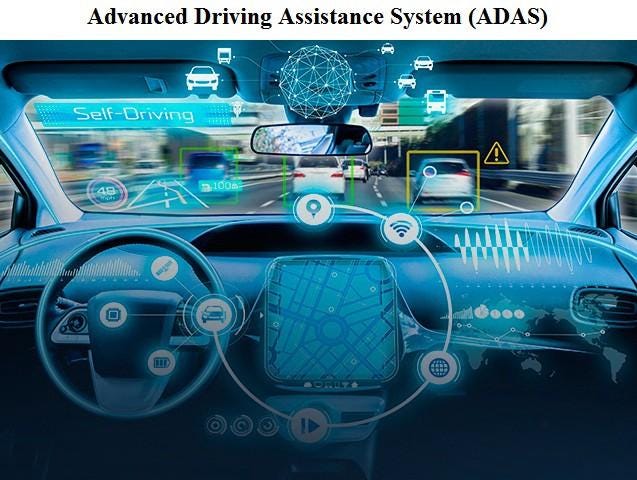As our roadways continue to evolve, there’s an increasing demand for safety, not just for drivers but for everyone who shares the road. Trucking companies, major players in transportation, have a significant responsibility. Recognizing that trucking companies need to invest in life-saving technology is a step towards a safer future. Implementing these technologies can significantly reduce accidents, save lives, and ensure a smoother flow of traffic.
But, beyond all this, it’s about setting a standard in the industry — a commitment to prioritizing human lives above all else. When accidents occur, knowing your rights becomes essential. JG Winter Law helps victims get the justice they deserve. As technology and law intertwine, it’s important to seek specialized legal assistance in trucking accidents.
What is the importance of the use of technologies in trucks?
In a world where vehicles are becoming increasingly advanced, it’s imperative for trucks, which are often on the road for longer hours and cover more miles, to keep up. The use of technology in trucks primarily enhances safety, ensuring that these large vehicles can coexist with smaller ones without posing excessive risks.
Advanced technologies offer real-time feedback to drivers, automate certain driving functions, and provide vital health insights, ultimately preventing accidents. Moreover, these innovations lead to improved fuel efficiency and reduced maintenance costs. In essence, integrating trucking technologies safeguards lives and optimizes operations, marking a win-win for both trucking companies and the public.
What are the technologies used in trucks?
Trucking technologies have seen rapid advancements in recent years. These innovations range from systems enhancing safety on the roads to optimizing the operational efficiency of the trucks. As trucks play a pivotal role in the global transportation industry, adopting these technologies ensures safer, more efficient, and environmentally friendly operations. Below are listed some key technologies that are revolutionizing the trucking world.
Telematics systems
Telematics systems combine telecommunications and informatics to offer real-time monitoring and reporting on vehicle performance and driver behavior. These systems can track a truck’s location, speed, idle time, trip history, and more. For trucking companies, this means better fleet management, optimized routes, reduced fuel consumption, and enhanced safety through monitoring driver behaviors.
Electronic Logging Devices (ELD)
ELDs automatically record a truck’s driving time, ensuring drivers adhere to legal limits on driving hours. It reduces the risk of accidents caused by driver fatigue. Besides promoting safety, ELDs provide trucking companies with valuable data that can help in efficient fleet management, ensuring timely deliveries and compliance with regulations.
Advanced Driver Assistance Systems (ADAS)

ADAS encompasses a range of systems, like adaptive cruise control and collision avoidance, that aid the driver in the driving process. These systems use sensors and cameras to detect potential threats, alert the driver, or even take automatic actions to prevent collisions. ADAS reduces human error and significantly boosts road safety for all users.
Platooning systems
Platooning involves electronically linking two or more trucks, allowing them to operate in close proximity at consistent speeds. It results in fuel savings due to reduced air drag. The leading truck determines speed and direction, with subsequent trucks following suit. This trucking technology promises enhanced road safety, better traffic flow, and reduced fuel consumption.
Electric and hybrid trucks
Amid growing concerns about environmental sustainability, electric and hybrid trucks have gained traction. These trucks are quieter and emit fewer pollutants, contributing to reduced environmental footprints. Furthermore, electric trucks have fewer moving parts, which can lead to decreased maintenance costs for trucking companies.
Predictive maintenance tools
Leveraging artificial intelligence and data analytics, predictive maintenance tools forecast when truck components might fail. These tools predict breakdowns before they occur and reduce unplanned downtime and associated costs. They ensure trucks operate efficiently, minimize disruptions, and enhance overall fleet reliability for trucking companies.
What are truck safety technologies that trucking companies need to invest in?
Safety should be the top priority for every trucking company. Investing in life-saving technologies is a moral imperative and a smart business decision. Advanced safety technologies can prevent accidents, reduce operational costs, and protect companies from costly litigation.
Below are some cutting-edge truck safety technologies that trucking companies must consider integrating into their fleets.
Air disc brakes
Air disc brakes provide superior stopping power compared to traditional drum brakes. They offer consistent performance even under extreme conditions, such as heavy loads or downhill gradients. These brakes are less susceptible to “brake fade” due to overheating, ensuring a safer and more responsive braking experience for truck drivers.
Automatic braking system
The automatic braking system, often part of a broader ADAS package, detects impending collisions and automatically applies the brakes if the driver fails to act in time. This technology can be crucial in avoiding front-end collisions and is especially useful in situations where a quick response is required, like sudden traffic stops.
Lane departure systems
Lane departure warning systems monitor a truck’s position within its lane and alert the driver if the vehicle starts to veer off course without an active turn signal. This system is pivotal in preventing side-swipe accidents and rollovers that unintentional lane departures cause, especially crucial during nighttime or in low-visibility conditions.
Camera monitoring systems
Traditional mirrors have blind spots that can be dangerous in trucking. Camera monitoring systems replace or augment mirrors, offering a broader and clearer view of the surroundings. They can display multiple angles, significantly reducing blind spots and aiding drivers in maneuvers like lane changes and reverse parking.
Health monitoring systems
Health monitoring systems monitor the physical and mental well-being of truck drivers. They track parameters like heart rate, eye movement, and fatigue levels. These systems alert drivers when it’s time to take a break, ensuring they aren’t pushing themselves to dangerous exhaustion levels.
Mobile apps

Several trucking technologies now come in the form of mobile apps. These apps can provide real-time traffic updates, report road hazards, monitor hours of service, and even offer training modules for drivers. Integrating such apps ensures that drivers have essential information at their fingertips, enhancing safety and efficiency.
Dynamic routing
Dynamic routing software can adjust a truck’s route in real-time based on current road conditions, traffic, and other factors. Dynamic routing avoids accident-prone areas, congested routes, or hazardous conditions, and ensures safety and timely deliveries for trucking companies.
Do trucking companies use truck safety technology properly?
The adoption of safety technology in the trucking industry has seen a significant rise, but its proper utilization remains a concern. While many trucking companies have begun integrating these advanced systems, not all ensure their consistent and effective use. Training drivers to use these technologies to their fullest potential is crucial, yet sometimes overlooked.
Regular maintenance checks, software updates, and periodic training sessions are essential to harness the maximum benefits. Without proper implementation and regular oversight, even the most advanced safety technology can fail to protect drivers, other road users, and the company’s reputation.
What to do if you are hurt in a truck accident?
Experiencing a truck accident can be devastating. Immediate and methodical action can play a crucial role in ensuring your safety and preserving your rights. Below is a step-by-step guide on what to do in such distressing times.
- Report the accident: Always call the police, even if the accident seems minor. A formal report can be valuable for insurance claims and legal actions.
- Seek medical attention: Even if you feel okay, some injuries may not be immediately apparent. A medical examination ensures you’re treated promptly, and it can serve as a record of injuries related to the accident.
- Document the scene: Use your smartphone to capture photos of vehicle damages, license plates, and the overall accident scene. This visual evidence can be crucial later on.
- Gather witnesses: Collect contact information from any witnesses. Their testimonies can be beneficial in establishing the accident’s facts.
- Avoid admitting fault: Stick to the facts when speaking to anyone at the accident scene. Do not admit blame, even if you believe you might be at fault.
- Notify your Insurance: Inform your insurance company about the accident. Provide them with the necessary details without admitting guilt.
- Keep records: Retain all medical records, bills, and other related expenses. These documents are vital when pursuing compensation.
- Contact a truck accident lawyer: Getting legal counsel is essential, especially in accidents involving trucks. J.G. Winter Law has a team of experienced truck accident attorneys who guide you through the complex legal process to protect your rights.
Wrapping up

In an era of technological advancements, trucking companies must prioritize safety and invest in life-saving technologies. These innovations aim to safeguard truck drivers and every other road user. Trucking companies can embrace these changes and significantly reduce accidents, thereby saving lives and minimizing costs related to these incidents.
For individuals who have unfortunately been involved in a truck accident, understanding legal avenues is essential to protect their rights. JG Winter Law understands the intricacies of truck accident cases. Our truck accident lawyers are dedicated to fighting for justice and helping the victims receive the compensation they rightfully deserve. Contact us today for comprehensive legal representation.




